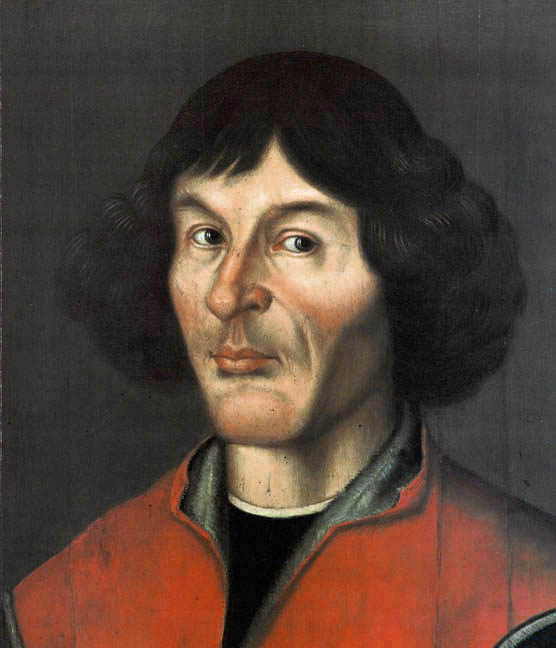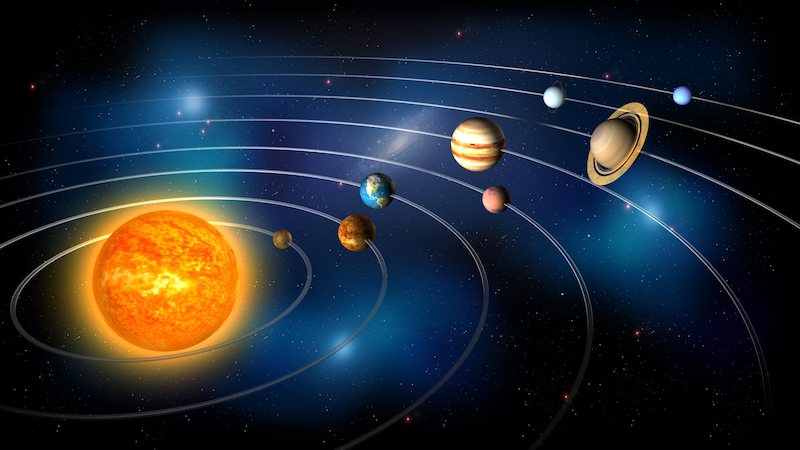Copernican Revolution
Episode #2 of the course “Ideas that changed the world”
Ancient people studied the stars, the sun, and the motions of “the heavens,” creating often far-fetched theories about their observations. With tools that enhanced astronomical observations, great thinkers of the ancient world made more precise and complex guesses about how the universe worked. Ultimately, this resulted in the Ptolemaic model, or geocentric model of the universe—this placed Earth as the center of the universe and the sun and planets moving in circular orbits around it.
This model dominated European astronomy for nearly 1500 years, although in Arab countries and elsewhere, astronomers continued to theorize alternate explanations for the heavenly bodies’ movements. In order to explain anomalies or observations that didn’t fit with the geocentric model, European theorists would make the geocentric model more complex, but they never radically changed it.
 Nicolaus Copernicus
Nicolaus Copernicus
Nearly 1500 years passed with astronomers developing complex models of the universe that never quite explained the behaviors of stars, planets, comets, and other astronomical phenomena. In Commentariolus, a 1514 short work written by Polish mathematician Nicolaus Copernicus, he summarized an introduction to his radical heliocentric model—a system in which the sun was placed at the center of the solar system with planets and other bodies orbiting around it. He claimed his theory was the first to explain the physical nature of the universe.
Shortly before he died in 1543, Copernicus published De revolutionibus orbium coelestium, complete with calculations and diagrams, and it immediately inspired his contemporary astronomers to take a closer look and re-evaluate their explanations about celestial observations. It wasn’t until 1610 that an Italian astronomer named Galileo Galilei observed the planet Venus’ orbit and confirmed Copernicus’ theory once and for all.
The ideological trend of questioning established theories and accepted truths was just beginning; it would come to be known as one aspect of the Enlightenment. The Copernican revolution not only changed human understanding of the nature of the universe, it changed human ideas about our place in the universe as well.
Quotes
“At rest, however, in the middle of everything is the sun.” by Nicolaus Copernicus
“For I am not so enamoured of my own opinions that I disregard what others may think of them.” by Nicolaus Copernicus
“To know that we know what we know, and to know that we do not know what we do not know, that is true knowledge.” by Nicolaus Copernicus
“I live on the other side of Copernicus and Galileo; I can no longer conceive of God as sort of above the sky, looking down and keeping record books.” by John Shelby Spong
“There is only one corner of the universe you can be certain of improving, and that’s your own self.” by Aldous Huxley
Recommended book
Share with friends

